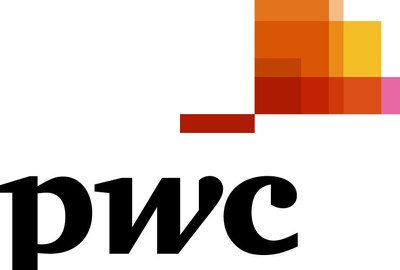Jan. 21, 2025 /Mpelembe Media/ — PwC’s 2025 Global CEO Survey reveals widespread optimism regarding global economic growth, with nearly 60% of CEOs anticipating increased growth and many planning headcount expansion. Despite this optimism, macroeconomic volatility and inflation remain significant concerns. The survey also highlights the growing importance of AI, particularly generative AI, in boosting efficiency and revenue, although trust in the technology remains a barrier to wider adoption. Furthermore, CEOs recognise the need for business reinvention to remain viable, with climate-related investments showing positive financial returns.
CEOs are adapting their strategies in response to a combination of economic optimism and the need for business reinvention. Here’s how:
- Economic Optimism: Almost 60% of CEOs expect global economic growth to increase over the next 12 months. This is a significant rise from 38% last year and 18% two years ago. This optimism is also reflected in headcount increases with 42% of CEOs planning to increase headcount over the next 12 months.
- Reinvention Imperative: A substantial 42% of CEOs believe their company will not remain viable for more than a decade without reinvention. This is driven, in part, by shifts in the regulatory environment.
- Actions to Reinvent:
- Business Model Changes: Almost two-thirds (63%) of CEOs have taken significant steps to change how their company creates, delivers, and captures value in the last five years.
- Venturing into New Sectors: 38% have begun competing in at least one new sector in the past five years, and for about a third of these companies, this represents over 20% of company revenue.
- Technology Integration: Around half (47%) expect to integrate AI into their technology platforms, 41% plan to integrate it into core business processes, and 30% have plans for new product and service development.
- GenAI Adoption: CEOs are seeing tangible benefits from GenAI, with 56% reporting efficiency gains and one-third experiencing revenue increases (32%). Despite this, trust in AI remains a challenge with only a third of CEOs having a high degree of trust in embedding the technology into core business processes.
- Climate Investments: Climate-related investments are proving to be financially beneficial. These investments are six times more likely to have increased revenue (33%) than decreased it (5%).
- Resource Reallocation: Companies are struggling with agility. Only a small portion of financial and human resources are reallocated, with about half reallocating 10% or less from year to year. On average, only 7% of revenue over the last five years has come from distinct new businesses.
- Risk Management: While optimistic, CEOs are still concerned about macroeconomic volatility and inflation, which remain top risks. Geopolitical conflicts are a major concern in the Middle East and Central and Eastern Europe. In Western Europe, cyber risk is a major concern.
- Focus on Value Creation: Business leaders recognise they must reinvent how they create, deliver and capture value in light of emerging technologies, shifts in geopolitics and the climate transition. They are aware that new business ecosystems are forming, transforming how companies compete.
In conclusion, CEOs are responding to a dynamic environment by embracing optimism while simultaneously recognising the need for fundamental changes in their business strategies, with a focus on technology adoption, exploring new sectors, and making climate related investments.
A significant percentage of CEOs are anticipating headcount increases, according to the sources. Here’s a breakdown:
- Overall, 42% of CEOs expect to increase headcount over the next 12 months, which is more than double the number expecting to decrease it. This figure is also up from 39% last year.
- Specifically, this 42% of CEOs expect to increase headcount by 5% or more in the next 12 months.
- Smaller companies (less than US$100 million) show the highest percentage of those planning to increase headcount, at 48%.
- The technology and real estate sectors also have a high percentage of CEOs expecting to increase their headcount, at 61% each, as well as private equity (52%) and pharma and life sciences (51%).
It’s worth noting that these increases are happening against a backdrop of a positive economic outlook, with almost 60% of CEOs expecting global growth to increase over the next 12 months. Additionally, CEOs are seeing a positive impact from GenAI, with many reporting efficiency gains. The sources suggest that, rather than leading to job losses, GenAI is contributing to headcount increases.
A significant proportion of CEOs have taken action to reinvent their companies, according to the sources. Specifically:
- Almost two-thirds (63%) of CEOs have taken at least one significant action to change how their company creates, delivers, and captures value in the last five years. This indicates a widespread effort among business leaders to adapt to changing market conditions and ensure future viability.
- Additionally, 38% of CEOs have begun competing in at least one new sector in the last five years. This shows a willingness to explore new markets and diversify business operations as part of their reinvention strategies. For about one-third of these companies, this move into new sectors has accounted for over 20% of their revenue during this period.
- While a large number of CEOs have taken action, the pace of reinvention is slow and companies are not very agile. Around half of the CEOs reallocate 10% or less of financial and human resources from year to year. On average, only 7% of revenue over the last five years has come from distinct new businesses.
In summary, while a majority of CEOs have initiated some form of reinvention within their companies, the data suggests that more substantial changes in resource allocation and business strategy may be needed to fully realise the potential benefits of reinvention.
The press release is available here

